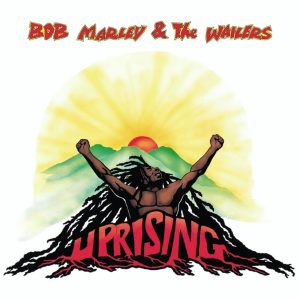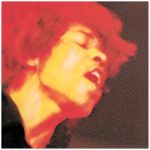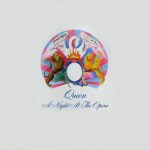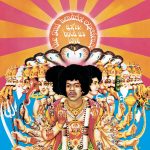
Category: Album
Title: Uprising
Artist: Bob Marley
Released: June 10, 1980.
Genres: Reggae, Roots Reggae, Spiritual Reggae
Album Background
Release Date and Label
Uprising was released on June 10, 1980, by Island Records. This album was Bob Marley’s last studio album released during his lifetime and was released shortly before his death on May 11, 1981.
Artist Context
At the time of Uprising’s release, Bob Marley was at the peak of his career, both musically and in terms of his influence as a cultural icon. However, he was also battling cancer, which would ultimately lead to his death. The album reflects a blend of hope and introspection, as Marley’s health was deteriorating while he continued to deliver powerful messages through his music.
Concept and Inspiration
Themes and Messages
Uprising explores themes of redemption, spiritual awakening, and resilience. It is characterized by a strong sense of hope and defiance, despite the personal and political struggles that Marley faced. The album’s content reflects Marley’s commitment to peace and justice, and it includes spiritual reflections and calls for social and political change.
Inspiration
The album was inspired by Marley’s personal experiences, including his health struggles and his reflections on his life and legacy. It also draws on his Rastafarian beliefs, focusing on themes of spiritual enlightenment and the quest for justice. The socio-political environment of the time, including ongoing issues of inequality and conflict, also influenced the album’s message.
Writing and Recording Process
Songwriting and Recording
The songwriting for Uprising was done by Bob Marley and the Wailers, with many tracks reflecting Marley’s introspection and spiritual growth. Recording took place at Tuff Gong Studios in Kingston, Jamaica, and the album was completed despite Marley’s declining health. The process was marked by a sense of urgency and a desire to leave a lasting message.
Notable Collaborations
The album features The Wailers, including Aston “Family Man” Barrett on bass and Carlton Barrett on drums. The I-Threes, comprising Rita Marley, Judy Mowatt, and Marcia Griffiths, provided backing vocals, adding richness and depth to the album’s sound.
Production Details
Producers and Sound
- Key Producers: Bob Marley and The Wailers, with Chris Blackwell as co-producer.
- Sound and Musical Style: Uprising features a roots reggae sound with an emphasis on melodic and rhythmic complexity. The production combines traditional reggae elements with more contemporary influences, creating a powerful and uplifting sound. The album is noted for its spiritual depth and Marley’s emotionally charged performance.
Track-by-Track Analysis
-
Track Listing:
- “Natural Mystic”
- “So Much Trouble in the World”
- “Bad Card”
- “We and Dem”
- “Work”
- “Zimbabwe”
- “Pimper’s Paradise”
- “Could You Be Loved”
- “Eight Eleven”
- “Redemption Song”
- “Forever Loving Jah”
Key Tracks:
- “Redemption Song”: One of Bob Marley’s most iconic and introspective songs, “Redemption Song” is a powerful call for freedom and resistance against oppression. The track features Marley alone with an acoustic guitar, delivering a poignant and emotional performance that resonates with listeners on a deep level.
- “Could You Be Loved”: “Could You Be Loved” is an upbeat, danceable track that became one of Marley’s most commercially successful singles. Its infectious rhythm and positive message of love and unity helped it become a favorite among fans and a staple of Marley’s live performances.
- “So Much Trouble in the World”: This song addresses the social and political issues of the time, reflecting Marley’s concern for global suffering and injustice. Its compelling lyrics and driving beat underscore the urgency of addressing the world’s problems.
- “Work”: “Work” is a song about perseverance and the importance of hard work in overcoming adversity. Its motivational message and upbeat rhythm make it an empowering anthem for listeners facing challenges.
Awards and Nominations
Awards and Nominations
Uprising did not receive major awards upon its release, but it has been critically acclaimed for its lyrical depth and musical quality. The album’s impact has been recognized over time, solidifying its place in Marley’s legacy.
Sales and Charts
The album achieved commercial success, reaching number 41 on the Billboard 200 chart in the United States and number 7 on the UK Albums Chart. It was certified Gold in the UK and remains one of Marley’s most celebrated works.
Impact and Legacy
Influence and Long-term Impact
Uprising is considered a fitting conclusion to Bob Marley’s career, capturing both his artistic vision and personal struggles. The album’s messages of hope, resilience, and redemption have continued to inspire listeners worldwide. Its influence extends beyond music, contributing to Marley’s enduring legacy as a symbol of peace and justice.
Conclusion
Summary
Uprising stands as a powerful testament to Bob Marley’s talent and message. The album combines spiritual depth with a call for social change, reflecting Marley’s enduring commitment to using his music as a platform for advocacy and inspiration.
Final Thoughts
Uprising is a poignant and impactful album that encapsulates Bob Marley’s final years and his unwavering dedication to his principles. The album’s blend of uplifting music and profound lyrics ensures its place as a significant work in Marley’s discography and as a lasting influence on global music and culture.


















Leave a Reply